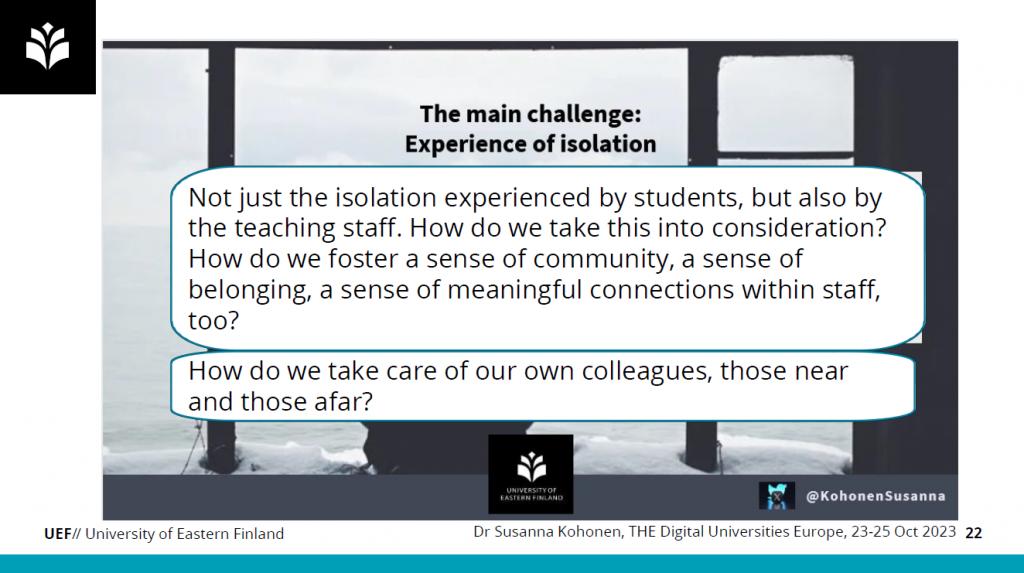THE (Times Higher Education) Digital Universities Europe 2023 conference took place in Barcelona, Universitat Oberta de Catalunya, on 23-25 October 2023. The programme included a wide range of pedagogical, digital support, e-learning support and pedagogical leadership perspectives. The conference had a pleasant balance between keynotes, presentations, and panel discussions, with good breaks and time for networking, booth visits and discussions.
Above all, the experience of place and time on campus and the programme’s arts and culture immersion felt invigoratingly holistic, taking into account the embodied nature of the human being. There was also room for multiple voices and views to be expressed. The humanistic and human-centred perspectives and the atmosphere conducive to critical and creative thinking was noticeable, as if flowing through the spaces, lights and sounds of Gaudí’s nature-inspired architecture into our digital reflections.
Leading pioneers in the field of digital pedagogy advised that if we as higher education communities are to be in any way prepared for the challenges of the future and the present, such as harnessing AI in teaching and learning, we need to give teaching staff the time and opportunity to engage in facilitated, open dialogue. They recommended that such facilitation should be systematically resourced and organised.
”Get your people ready”, stressed Vijay Kumar (Senior Adviser to the Vice President, Open Learning, MIT, USA) and Prof. Albert Sangrà (UNESCO Chair in Education and Technology for Social Change, Universitat Oberta de Catalunya, Spain).
It must be possible, at least occasionally, to allocate teaching staff work hours from full-time teaching to professional development and teaching development.
This aspect of well-being at work and an organised Communities of Practice peer support approach was strongly supported, among others, by the President, Prof. Oliver Günther (Universität Potsdam, Germany), Director Nanda Dimitrov (Centre for Educational Excellence, Simon Fraser University, Canada) and Managing Director George Ubachs (European Association for Distance Teaching Universities, The Netherlands).
What they stressed was also seamlessly integrated in my own invited presentation, in which I overviewed the University of Eastern Finland’s online and blended learning pedagogy facilitation activities as part of our university’s strategic teaching development process.
I argued that one of the main challenges for all of us in the field of online learning and teaching still remains the experience of isolation of both students and teaching staff. I suggested that as one response to this challenge, we must also reflect on our own teaching, communication, community-building and work practices in the broader context of critical digital pedagogy.
Otherwise, we risk falling into the trap of reinforcing digital hegemonies or even digital colonialism. Humaneness, mutual respect, caring for each other and ourselves must be the guiding principles of our actions. Each one of us is able to do this.

Susanna Kohonen, Lecturer, Language Centre, University of Eastern Finland.

